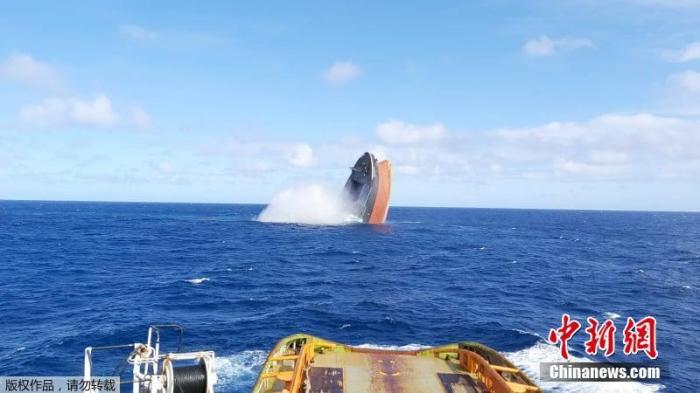China News Service, August 26. According to Kyodo News Agency of Japan, on the 25th local time, the second group of the Japanese International Emergency Rescue Team in Mauritius held an online press conference. It said that the Japanese freighter's fuel leakage accident occurred in the coast of Mauritius. , The ship hitting the reef may cause the death of corals in nearby seas.
On August 10, local time, a Japanese freighter ran aground off the coast of Mauritius, with heavy black oil floating on the surface. According to reports, more than 1,000 tons of fuel have leaked from the ship, causing immeasurable ecological damage to the marine environment and fishing grounds of Mauritius.
According to reports, the emergency assistance team pointed out that they believed that the back half of the stranded hull swayed with the waves, cutting the coral below it into fine particles, causing it to "subject to considerable damage."
They believe that the granular corals drifting in the sea will attach to the corals close to the land, "suffocating the corals, or stressing the corals. If they last too long, they will die."
According to the emergency assistance team, the visibility in coral reef shallows is usually 30 meters, but at present, the visibility in some places off Mauritius has dropped to about 3 meters. In addition, some oil booms set up at sea to prevent oil from drifting may also cause damage to corals.
On August 24, local time, after a Japanese freighter that had a fuel oil spill off the coast of Mauritius broke, the front half of the hull was towed to the ocean surface for sinking.
At present, the hull of the ship hitting the rocks has been broken in two, and the first half sank on the 24th. The Mauritian authorities have decided to dismantle the second half of the hull before November 1.
In addition, the emergency assistance team also revealed that the leaked fuel drifted into nearby mangroves. It is said that if a person steps into a muddy swamp, the oil on the surface may enter the soil. The assistance team reminded, “It is necessary to carefully carry out the work of removing the oil, and do not trample on the spot at will”.
The Japanese cargo ship involved in the incident hit a coral reef off the Indian Ocean on July 25 and ran aground, and began to leak oil on August 6. Subsequently, the Mauritian government declared an environmental emergency. Earlier on the 19th local time, Nagapu Steamship Company apologized for this incident. In addition, the two captains were arrested overnight on suspicion of endangering navigation safety.

